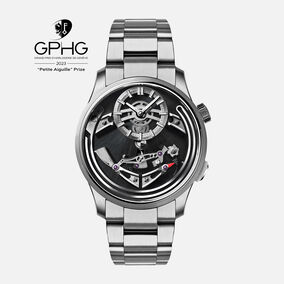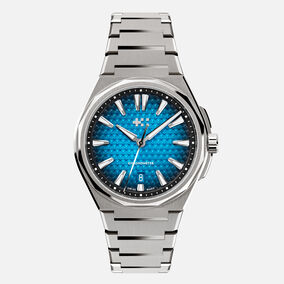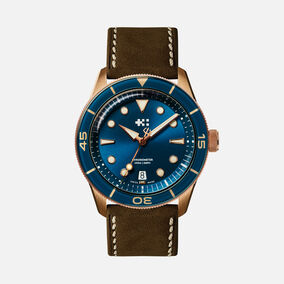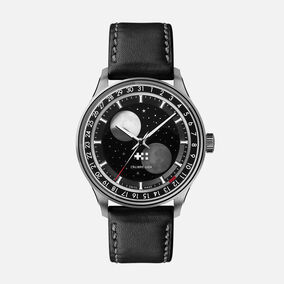The British watch industry has grown over the last 20 years, but does it have a global presence? Laura McCreddie-Doak finds out
Twenty years ago, when Mike France, Peter Ellis and Chris Ward started the conversation that would lead to a watch brand named after the latter, there really wasn’t a British watch industry to get excited about. It was a landscape of individuals such as Roger W. Smith or Robert Loomes, singular men steeped in traditional crafts making minimal amounts of watches for the privileged few.
What a difference two decades makes. A 2021 survey commissioned by the Alliance of British Watch and Clock Makers and undertaken by KPMG found over 100 watch brands and watch-related businesses in the UK producing around one million watches or clocks.
The UK has form here. In the mid-1600s, Brit Ahasuerus Fromanteel made the first-ever pendulum clock and, for his sins, was patronised by Oliver Cromwell. Decades later, Thomas Tompion – generally known as the father of English clockmaking – teamed up with inventor, scientist, physicist and inventor of the balance spring, Robert Hooke, and in a heady combination of horology and science effectively kickstarted the golden age of English clockmaking; a reputation that was cemented in 1714 when John Harrison won the Longitude Prize.
By 1800, Britain was producing 200,000 watches a year as well as exporting horological inventions such as Thomas Mudge’s lever escapement and Tompion’s cylinder version across Europe and even as far as Russia and China. As is often the case, complacency, aided by war and economic downfall, led to collapse and, by the 1970s it was all gone aside from the self-taught mavericks the likes of George Daniels and Derek Pratt. Things have changed in the intervening years, with brands openly talking up their Britishness, but is there really a scene; one that can compete on the global stage with a reputation that sets it apart?
George Bamford, founder of Bamford Watch Department, thinks there is. “A seminal moment was Christopher Ward winning the Petite Aiguille prize at the GPHG awards with the Bel Canto against the Swiss watch brands,” he says. “This was a real eye-opener for the rest of the world to see how amazing British watchmaking is.”

He’s not wrong. Seeing a UK brand take on the likes of Bulgari and Tudor, who were both nominated in the Petite Aiguille category, and win, was a wonderful moment, but the GPHG is an industry event, and, unlike the Oscars, not something promoted to those outside the watch world. However, there are signs that Brits are gaining recognition in a wider context; but not necessarily on home soil, as Giles Ellis, owner of Sussex’s Schofield Watch Company observes: “I think the scene is better understood from abroad,” he says. “By those that look at us as a collective. Many American owners of Schofield may also have a Pinion or Vertex, a Christopher Ward or Fears.”
For Fears’ fourth-generation managing director Nicholas Bowman-Scargill, just being British isn’t enough. “Some believed that coming from the UK is all you need to get people to take notice, which isn’t right,” he says. “Being a British watch company does give you a point of difference but it’s what you do that makes it relevant.”
But what can be leveraged out of the British ‘brand’? It’s complicated. Whereas Switzerland has an infrastructure that allows brands to claim they are ‘Swiss made’ – a phrase synonymous with quality and pedigree – few UK brands can claim that. Even Bremont, with its new manufacturing facility, The Wing, still relies on parts from other countries because we don’t have the ecosystem here.
Brands based in Britain, according to the 2021 KPMG survey, would like to invest in home-grown businesses but the suppliers who meet the requisite demands of cost and quality aren’t available. There’s also the accusations of ‘Brit-washing’.
If companies that are registered in the UK promote themselves as British, there are bound to be mutterings from purists who are keen to point out where they manufacture and where the parts come from. It doesn’t matter that the majority of the design happens in the UK and therefore the IP is British, the pedantic view is if you’re not making or assembling here, you’re not British.
“We totally reject this,” says William Brackfield, designer at Christopher Ward. “Our aesthetic ethos – as well as the philosophy of our brand – is British. The way we mix tradition and modernity, and our ability to innovate at speed could only have come from the UK. We have a point to prove!”
Maybe we’re looking at this all wrong. Perhaps the idea shouldn’t be creating a British watchmaking scene that competes with the Swiss but rather forging an identity that is recognised globally without the pressure to compete on that scale or a reliance on a pedantic definition of what a British brand actually is. Just as, after the once world-renowned UK watchmaking industry disappeared in the 1970s, we relied on those self-taught mavericks to keep the candle burning, we should be looking to their 21st century compatriots – think Studio Underd0g, Struthers, Fears, and Schofield.
As Bowman-Scargill says, “British watch brands distinguish themselves through a steadfast commitment to heritage, craftsmanship, and storytelling.”
For Peter Ellis, co-founder of Chistopher Ward, the success of CW, Bremont and other brands is genuine and should be celebrated. “Events like British Watchmakers’ Day show how far the industry has come and how deep the foundations are. There’s no reason why UK horology can’t take its place at watchmaking’s top table once again – the world is watching!”

“British watch brands distinguish themselves through a steadfast commitment to heritage, craftsmanship, and storytelling”
Related watches
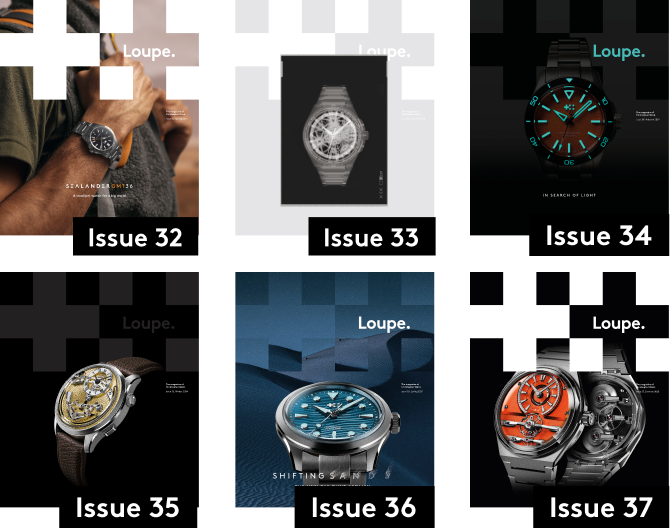
Sign up to Loupe magazine
Loupe is Christopher Ward’s quarterly in-house magazine. If you want to know what’s happening at CW (and you love great journalism), this is where to start. Alternatively, you can read all our back issues on your computer, tablet or phone.
Order your free copyRead Loupe online


